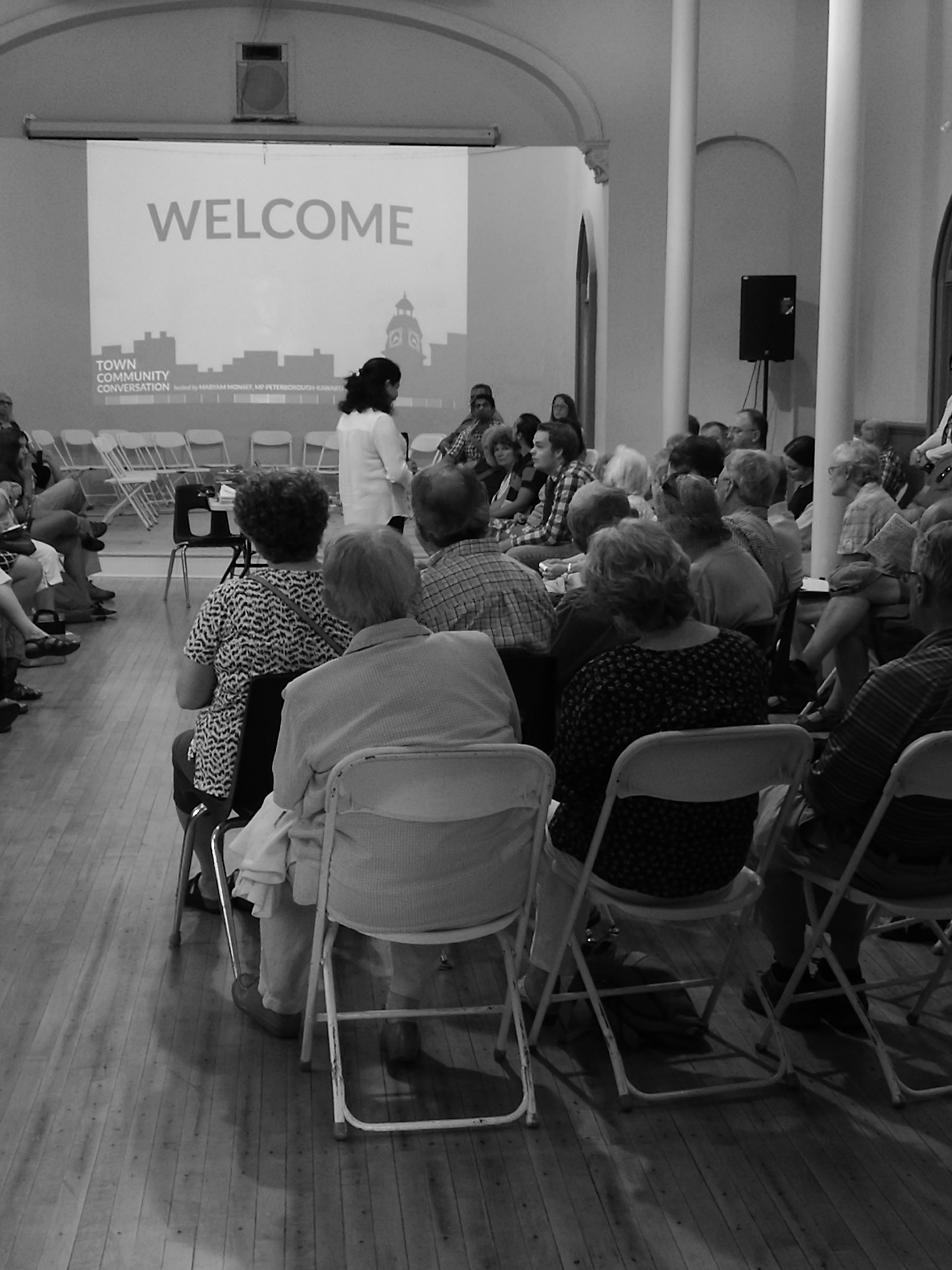
On Monday September 5th, Maryam Monsef (MP Peterborough-Kawarthas and Minister of Democratic Institutions) invited students at Trent University to participate in a conversation about democracy and electoral reform. The event was the first of three community conversations happening in the riding and brought nine students representing a diverse range of experiences to The Gathering Space. First year, mature, and upper year students all participated in the hour-long conversation about electoral systems in Canada.
The event illustrated how participatory spaces may be a different way of discussing these issues and opens the opportunity for every voice to share their own experiences. Opening with a large circle and introductions, each person shared why they were participating in a dialogue about electoral reform before moving into small groups of three to discuss online and electronic voting, mandatory voting, how to improve engagement, and the values that would be crucial in a new electoral system.
Monday was an opportunity to learn, to engage in federal politics, and to bring more participatory dialogues to politics on campus. It is difficult to imagine political structures and dialogues changing, but this conversation was a glimpse into the political imagination of those who advocate for something better. And it was better; it was respectful even when participants disagreed fundamentally on a topic (such as mandatory voting), it allowed every participant to share what change they want to see without interruption, and it exposed each person to new ideas.
Critical conversations and disagreements happened in this space, but the rants, long-winded speeches, or bitter yelling matches that have been associated with the topic of electoral reform in the past did not characterize the discussions on Monday.
The conversations never focused on the ins and outs of a new electoral system (we all agreed this was far too complicated to understand in one evening). Instead, we discussed the values we wanted in our electoral and political institutions: inclusivity of all citizens, better spaces to engage in political discussions, more opportunities for young citizens to vote, discuss, and run for office, among others.
The conversation of electoral reform became more complicated when members of the group put these values forward, and it became clear that no one system had a clear edge over the other. What we learned from each other is that electoral reform is messy. But a conversation about democratic values opened up a larger and important conversation about the stuff of politics.
At the end of the night, Monsef challenged the room to be advocates for democratic conversations, reminding the group that electoral reform is the first step in a series of changes that will modernize institutions in Canada.
If the goal of participatory conversations about reform is to create democratic advocates, it may just have worked. The dialogue that took place in the hour we shared together sparked a new desire to continue participatory spaces on campus and continue this democratic dialogue.
The conversation on electoral reform may have sparked a new political reform on campus. There is a new desire for creating participatory and political spaces for dialogue, and this is something we can all aspire to this year on campus.
